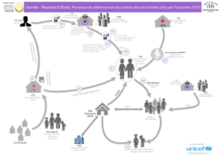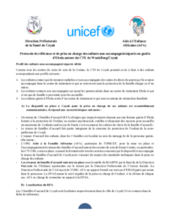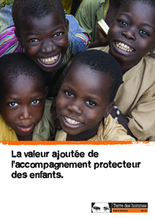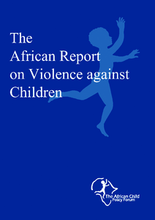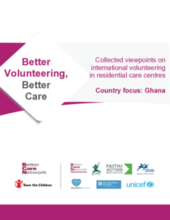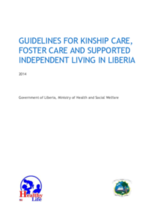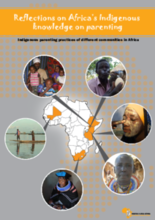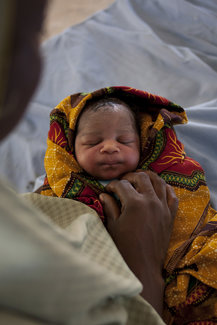

Displaying 451 - 460 of 635
Processus de référencement des enfants dans les Familles d'Accueil Temporaire (FAT).
Protocole de référence et de prise en charge des enfants non-accompagnés/séparés ou guéris d’Ebola autour du Centre de Traitement Ebola de Wonkifong/Coyah
Une immersion au sein du Réseau Afrique de l'Ouest (RAO) pour la protection des enfants en Afrique de l'Ouest). Ce réseau prend en charge individuellement les enfants vulnérables entre les 15 pays de la sous-région pour les réintégrer socialement et professionnellement.
A l’heure actuelle, Tdh ayant surtout expérimenté et valorisé cette approche pour l’accompagnement des enfants en situation de mobilité, le présent document fait un focus sur cette catégorie d’enfants, et de manière plus spécifique dans un contexte de migration de travail, l’une des causes principales de la mobilité des enfants en Afrique de l’ouest.
This report, from the African Child Policy Forum, is aimed at informing and accelerating pan-African, regional and national efforts to prevent and respond to violence against children.
This report from SOS Children’s Villages and the University of Bedfordshire provides reviews and assessments of the implementation of the Guidelines for the Alternative Care of Children in 21 countries around the world.
This overview is intended to contribute to discussions on international volunteering in residential care centres as an anecdotal research piece on the situation in Ghana.
The Guidelines for Kinship Care, Foster Care and Supported Independent Living in Liberia are intended to provide harmonized national guidance for child welfare practitioners in order to improve the quality of family-based alternative care services in Liberia, particularly for children without appropriate care (CWAC).
This report is based on a synthesis of eight assessments of the implementation of the Guidelines for the Alternative Care of Children (“the Guidelines”) in Benin, Gambia, Kenya, Malawi, Tanzania, Togo, Zambia and Zimbabwe.
This publication, produced by the Parenting in Africa Network (PAN), highlights the skillful parenting practices of several pastoral communities in Africa.

